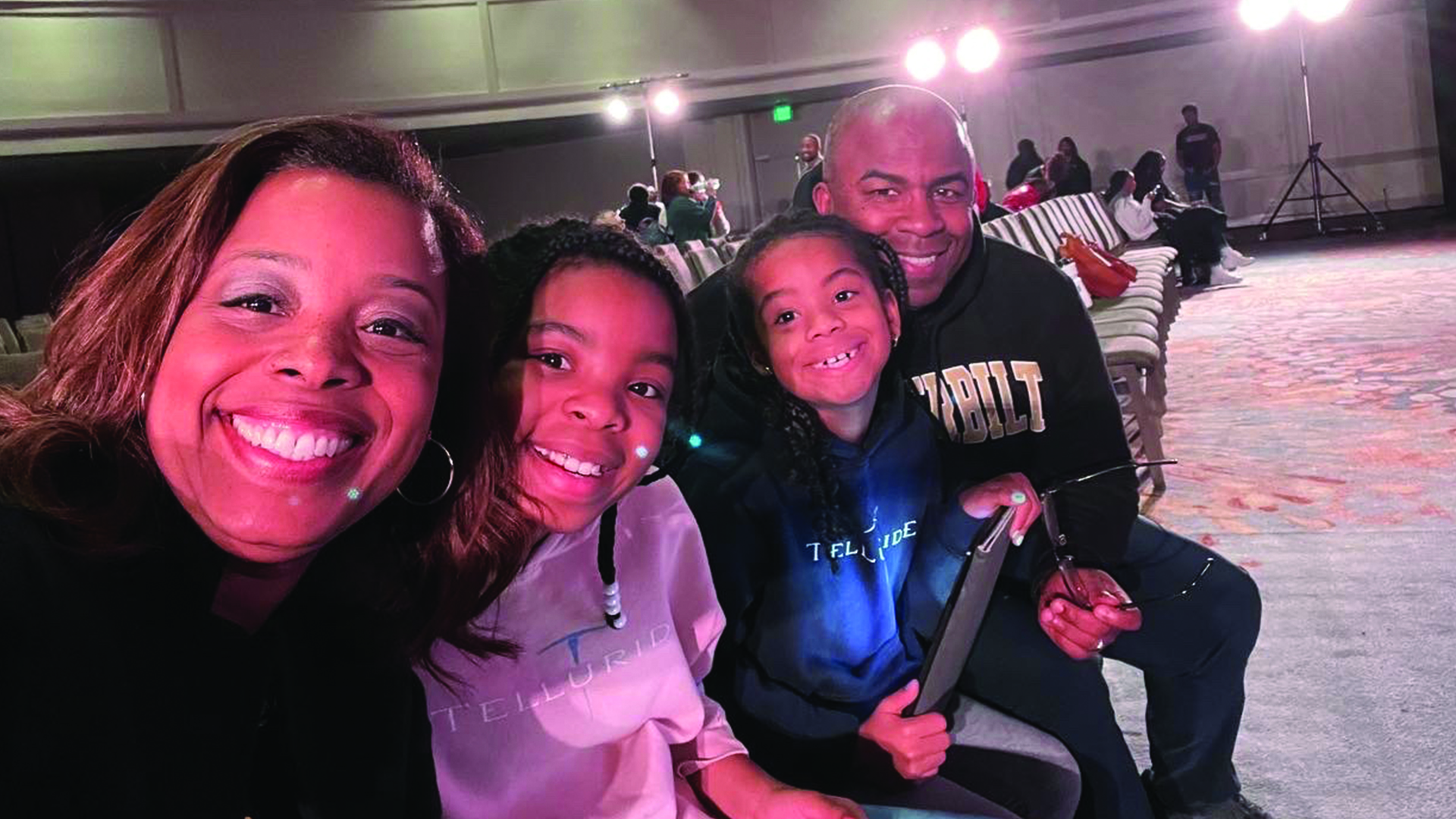
The ‘Pregnant Possibilities’ of Christmas
Dr. Nicole Martin, Chief Impact Officer at Christianity Today, discusses why Christ coming as a baby instead of an adult should be massively important to Christians, and how the example of Mary is a powerful reminder for women today.
You can listen to this conversation with Nicole on our podcast, Work, Love, Pray! Listen below or click here to find your preferred listening platform.
Let’s talk about “pregnant possibilities” and why that is part of your personal meaning of Christmas.
There are a couple of reasons why I use that particular phrase. First of all, Christmas is a time to remember the embodied nature of God and that God’s ministry to us and through us is not without us. God literally comes through us, and He chose to come into this world like every single human being came into this world: through a woman’s womb. I was in active ministry when I was pregnant with both of my girls. Addie was born in a February, and Josie was born in a March, so I was also pregnant with both of them during Christmas.
Right before Addie was born, it was not uncommon for people (mostly women) to come up to me and say, ‘You should stop preaching now. You’re starting to show and we’re getting worried about you.’ Or I would preach and people would ask, ‘Do you need to sit down? Is everything okay?’ I held to the idea that God had equipped me and my body to be able to carry this child and to do what I was made to do.
So it was when I was pregnant, while preaching at Christmas time, that I realized there’s so much in this moment when Christ comes to Earth. Christmas carried an electric possibility. I think of Mary: pregnant, anxious and nervous, but knowing that what was about to come was beyond what she could have ever imagined. I also think as women, Christmas gives us a reminder to embrace our bodies. The way that God made us, with all of the bumps and the bruises and the curves and all of that, is a perfect reminder that God chooses broken bodies to bring forth beautiful blessings and miracles.
Why do you think God chose to have His Son be physically birthed into the world?
I wrestle with this a lot. God could have shown up as a fully-grown adult, so why as a vulnerable child? And why did He choose to have, arguably, a vulnerable child have a vulnerable child? By most historic accounts, Mary was a teenager, anywhere from 13 to 16 years old. At the time of of the immaculate conception, she was not married, either. Christ’s coming had all of these layers of vulnerability, and it does beg the question, ‘God, why not come in strength?’
I think it speaks more about God’s knowledge of us than it does about any perceived weakness of God, because God has no weakness in Him. He knew enough about our brokenness and our vulnerabilities that He knew the best way to be with us was to be like us in that way. Again, this is the joy of Christmas. We celebrate the fully God, fully man coming of Jesus. It is so humbling to know that Christ chose to be that close to us. Jesus understands what it’s like to have growing pains. He understands how we feel when we bruise a knee. He understands what it means to be us, to be human, which in turn allows us to connect more deeply with Him.
The final part of what Christmas means to you is centered around one word: promise. Why do you believe Christmas carries promise for Christians?
I think part of the challenge of Protestantism is that we decentralize merry, and that’s understandable. I mean, scripture allows Mary to be an important part of the picture, but Christ is the center. But what we can glean from our Catholic brothers and sisters is the deep importance of the prophecy of Jesus through Mary. There were prophecies throughout Old Testament scriptures that Christ would be born in Bethlehem to a virgin. All of these things were set up. So by the time Mary receives her message from Gabriel, even she knows this is part of the promise.
The Messiah being born is the promise fulfilled in that moment. The fact that the Messiah was born, crucified, and resurrected is a reminder of the promise that He’s coming again. But He can’t come again unless He is born. So this is the gift of Christmas. This child, who was born and made flesh to dwell among us to be like me, is coming back for me. Past, present, and future is shrunk into one moment: the birth of Christ. He was born, He died, He rose, and He’s coming again.

Reverend Doctor Nicole Massie Martin was born and educated in Baltimore, Maryland. She graduated magna cum laude from Vanderbilt University with a triple major in Human and Organizational Development, Educational Studies, and French. Dr. Martin received her Master of Divinity from Princeton Theological Seminary. She earned a Doctor of Ministry at Gordon-Conwell Theological Seminary with an emphasis on African American Redemptive Leadership.
Dr. Martin serves as the Chief Impact Officer at Christianity Today. She is the founder and Executive Director of Soulfire International Ministries, which accelerates thriving for pastors, churches, and younger leaders. She is also active in her local congregation in Maryland at Kingdom Fellowship AME Church where she supports the Discipleship Ministry.
Dr. Martin is a gifted writer and author of Made to Lead: Empowering Women for Ministry and Leaning In, Letting Go: A Lenten Devotional. She serves on the board of the National Association of Evangelicals and has been inducted into the esteemed Board of Preachers at Morehouse College.
Dr. Martin is married to her best friend, Dr. Mark Martin, and they have two amazing daughters, Addison and Josephine.